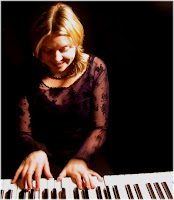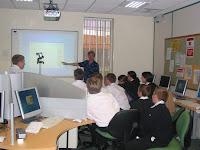Archivo de la categoría: Sin categoría
Solución del ejercicio sobre Presente Perfecto (Present Perfect Tense) (2)
Solución del ejercicio sobre Pasado Continuo – Textos
and yesterday he realized that he had enough, but when he was driving to the travel agency he remembered that he did not pay the rent, dissapointed he turn round and went back home. He was getting very ungry when he thought that he could borrow some money and finally he could travel. Tom estuvo ahorrando dinero durante meses para ir a Francia y ayer él se dio cuenta que no tenía suficiente, pero cuando conducía a la agencia de viajes recordó que no pagó el alquiler, desilusionado dio vuelta y regresó a su casa. |
Peter was driving to work yesterday when a dog ran into the middle of the road, while he was trying to avoid the accident, other car crashed with Peter’s so he couldn’t do anything about it. He decided to call the police but when they was arriving to the place the second car escaped, fortunately the police could catch him to ask the driver some questions. Peter estaba conduciendo a su trabajo ayer cuando un perro corrió hacia la mitad del camino, mientras él estaba tratando de evitar el accidente, otro auto chocó el de Peter así que no pudo hacer nada. Él decidió llamar a la policía pero cuando ellos estaban llegando al lugar el segundo automóvil escapó, afortunadamente la policía pudo capturarlo para hacerle algunas preguntas al conductor. |
Jim was walking along the High Street when he noticed someone behind him. The man was following him during the whole day, so he decided to go faster. When hewas entering into a dark and narrow street, his heart was going to explode but when he turned back to see if the man kept following him, he dissapeared. Jim estaba caminando por High Street cuando advirtió que alguien estaba detrás de él. El hombre estuvo siguiéndolo durante todo el día, así que decidió ir más rápido. Cuando él estaba entrando a una calle oscura y estrecha, su corazón estaba latiendo muy fuerte pero cuando el regresó a ver si el hombre continuaba siguiéndolo, desapareció. |
Solución del ejercicio sobre Artículo Determinado e Indeterminado
Solución del ejercicio sobre Futuro Cercano
Si has reordenado estas oraciones en su forma correcta colocando la acción en Futuro Cercano, aquí puedes verificar la respuesta:

|
Solución del ejercicio sobre Estructura de la Oración (2)
En esta entrada te ofrecemos la solución del ejercicio sobre estructura de la oración el el cual debías reacomodar las palabras teniendo en cuenta los tiempos verbales aprendidos:
Solución del ejercicio sobre Estructura de la Oración
En esta entrega te ofrecemos la forma correcta de ordenar las frases de acuerdo con la estructura de la oración:
Solución del ejercicio sobre Pasado Simple II
Continuamos entregando la solución de algunos ejercicios que no se habían publicado anteriormente debido a su simplicidad. En este caso te ofrecemos el modo de completar correctamente estos textos colocando los verbos en Pasado Simple y traduciéndolos al español:
Solución del ejercicio sobre Pasado Continuo
Solución del ejercicio sobre Presente Continuo – Interrogativo y Negativo
Si ya has realizado el siguiente ejercicio sobre Presente Continuo verifica tus oraciones con la forma correcta que te ofrecemos a continuación. Recuerda que debías completarlas con el verbo, luego traducirlas al español y finalmente escribir su forma interrogativa y negativa como lo muestra este ejemplo:
Alice está mostrando su sombrero.
Is Alice showing her hat?
Alice is not showing her hat.



















